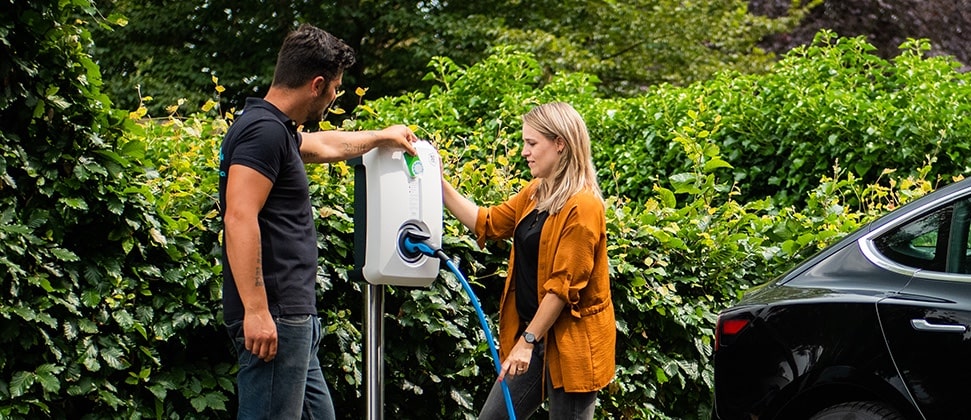
Electric car plugs: Are they all the same?
So are all electric car plugs the same?
Charging your electric car at home is easy, but what about charging at a public charging system? If you have never done it before, you may be worried about using the wrong plug for your vehicle. So, do all electric cars have the same plug? This is a question that most people who are new to electric cars ask. The answer to this question is that there are different plugs and cables for varying vehicle brands and the points of use.
Plugs and charger types
Electric car chargers are not as simple as you may think. There are different plugs and connectors as well as varying modes of operation. An EV charging cable is made up of the connector, the plug and the wire that connects the two. A connector plug into your car and the plug is the part that connects into the power source. Below are some of the charging levels and the plugs used.

Level 1 charging
All-electric vehicles come with this charging cord with a typical three-prong plug that can plug into a standard wall socket, including those inside your house. There is a connector for the car’s charging port on the other end and electronic circuitry in the middle.
Level 1 charging is the slowest as it is designed for the standard electrical outlets at home. This type of charging is best for overnight charging when time is not an issue. Most of the cords have some coloured lights to help the user identify when the car starts charging, plus they also test the circuit when plugged in to ensure that it is properly grounded and has enough current to power the charger. The type 1 Plug is a single-Phase plug with top charging levels of 7.4 kW. This standard is common in Asian car models and is rare in Europe.
Level 2 charging
Unlike level 1 charging, users need a charging station for level 2 charging. EV owners have to purchase the level 2 chargers separately as they are not included with the car. The charging stations for this charging level operate at 240 Volts, which is twice as fast as level 1 charging. The level 2 cables also have incline circuitry, which helps the charging station to communicate with your car to identify the amount of current needed for that particular model.
People with fully electric vehicles need a level 2 for overnight charging at home, but they require professional installation for safety reasons. The charging power levels of the type 2 plug is up to 22kW at private spaces and up to 43kW in public charging stations (or even up to 150kW at Tesla Supercharging stations). Most public stations and private businesses also level 2 charging station because of its faster-charging speed and compatibility with mode 3 charging cables. So if you have seen an EV charging station at a local parking garage; it was most likely a level 2.

DC fast charging
DC fast charging is faster than all the other types of charging because it uses direct current (DC) instead of the typical alternating current (AC). DC fast charging has three different types of charging stations:
Tesla Supercharger
Tesla has created a network of free fast-charging stations that can only charge Tesla cars. The supercharger is a modified version of the Type 2 Mennekes plug which can charge their Model S to 80% within 30 minutes.
CHAdeMO
This is currently the most popular charging station used by the Honda Fit, Kia Soul, Nissan Leaf and many more. CHAdeMO was developed in Japan and has charging capacities of up to 50kW.
Combined Charging System (CCS)
CCS is an enhanced model of the Type 2 plug. The plug has to additional power contacts to support both AC and DC charging and allow quick charging. All German and US EV makers except Tesla Use CCS use this type. EVs produced by Ford, BMW, Volkswagen, Chevrolet, Volvo and Mercedes uses this standard.
Choosing the best charging level for your EV
Type one charging stations are best for hybrid cars with smaller batteries and overnight charging because they are too slow for fully-electric vehicles and during travel. The level three chargers are the best choice if you want to charge your car within the shortest time possible. You should, however, ensure that the battery’s state of charge is below 80% because the charging speed drops significantly after that point. The charging rate for the last 20% using a DC fast charging station is the same as using a level 2 station. When it comes to the cost of charging, level 2 stations are cheaper than level 3 stations.
It is also important to check whether your electric vehicle is compatible with level 3 chargers as some models only accept level 1 and level 2 charging stations.

Conclusion
Currently, the lack of a standardised car plug is one of the challenges that EV owners have to face. One has to look for a station that is compatible with their car model or look purchase adapters. However, there is a possibility that the on-going electric vehicle revolution will address some of these issues through improvements in EV charging technology and the introduction of a standardised charging mechanism.


